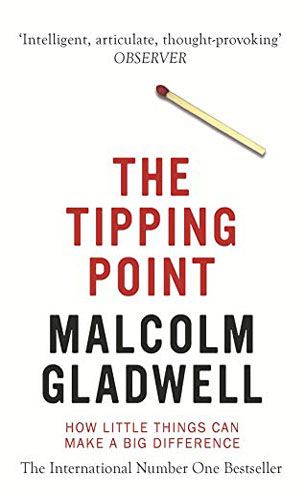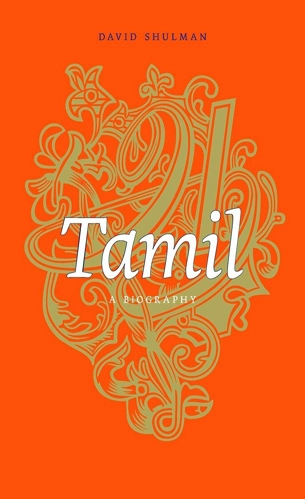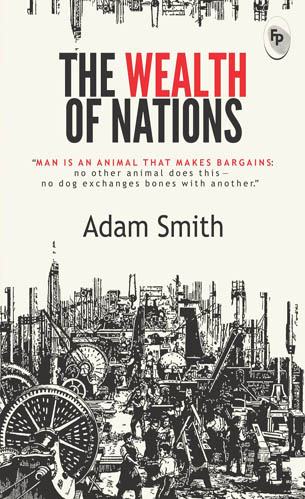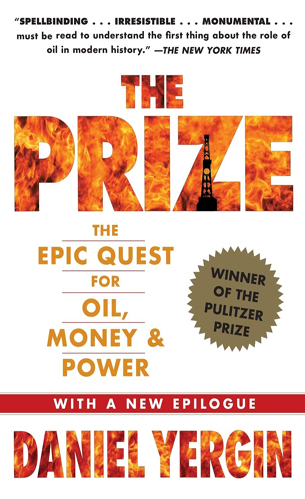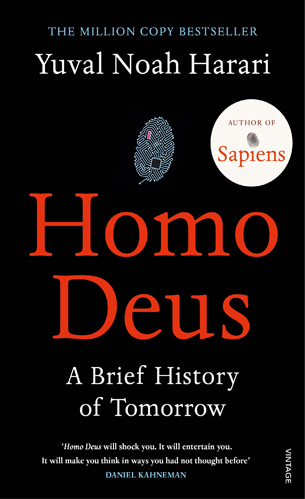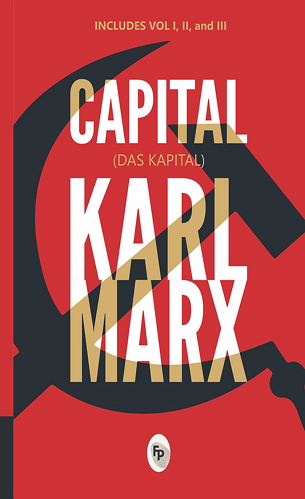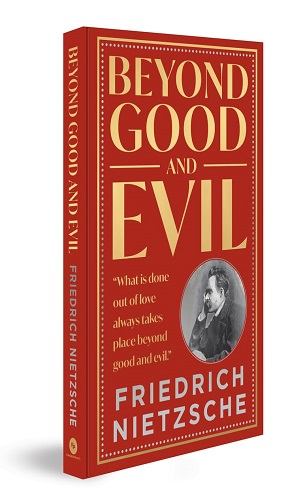Category
- Discounted Books
- English Book Bundles
- University Magazines
- சிறுவர்களுக்கான புத்தகங்கள்
- Children Books
- English Books
- Current Affairs
- Military & Intelligence
- Short Stories
- Fiction
- Poetry
- Environment & Nature
- Science
- Medicine
- Linguistics
- Atheism & Agnosticism
- (Auto)Biography & Memoir
- Business & Management
- Creativity
- Economics
- Education & Research
- Health & Nutrition
- History
- Humor
- Love & Relationships
- Parenting
- Personal Development
- Personal Finance
- Philosophy
- Politics
- War
- Psychology
- Religion & Spirituality
- Society & Culture
- Sports
- Travel & Adventure
- Technology & the Future
- True Crime
- Women Empowerment
- தமிழ் Books
- Book Bundles ( தமிழ் )
- சட்டம்
- இயற்கை
- கட்டுரை
- கணிதம்
- பயணக்குறிப்புகள்
- விவசாயம்
- அரசியல்
- ஆரோக்கியம்
- உளவியல்
- புனைவு
- காதல் மற்றும் உறவு
- சமூகவியல்
- சுயசரிதைகள் மற்றும் நினைவுகள்
- சுயமுன்னேற்றம்
- தத்துவஞானம்
- தொழில்நுட்பம் & எதிர்காலம்
- பொருளாதாரம்
- போர்
- பணம்
- மதம் & ஆன்மீகம்
- வணிகம் & மேலாண்மை
- வரலாறு
- விஞ்ஞானம் & பிரபல அறிவியல்
- விளையாட்டு
- சினிமா
- கவிதைகள்
- குழந்தை வளர்ப்பு
- குற்றம்
- மருத்துவம்
- மொழி
Product categories
- Children Books
- Discounted Books
- English Book Bundles
- English Books
- (Auto)Biography & Memoir
- Atheism & Agnosticism
- Business & Management
- Creativity
- Current Affairs
- Economics
- Education & Research
- Environment & Nature
- Fiction
- Health & Nutrition
- History
- Humor
- Linguistics
- Love & Relationships
- Medicine
- Military & Intelligence
- Parenting
- Personal Development
- Personal Finance
- Philosophy
- Poetry
- Politics
- Psychology
- Religion & Spirituality
- Science
- Short Stories
- Society & Culture
- Sports
- Technology & the Future
- Travel & Adventure
- True Crime
- War
- Women Empowerment
- University Magazines
- சிறுவர்களுக்கான புத்தகங்கள்
- தமிழ் Books
- Book Bundles ( தமிழ் )
- அரசியல்
- ஆரோக்கியம்
- இயற்கை
- உளவியல்
- கட்டுரை
- கணிதம்
- கவிதைகள்
- காதல் மற்றும் உறவு
- குற்றம்
- குழந்தை வளர்ப்பு
- சட்டம்
- சமூகவியல்
- சினிமா
- சுயசரிதைகள் மற்றும் நினைவுகள்
- சுயமுன்னேற்றம்
- தத்துவஞானம்
- தொழில்நுட்பம் & எதிர்காலம்
- பணம்
- பயணக்குறிப்புகள்
- புனைவு
- பொருளாதாரம்
- போர்
- மதம் & ஆன்மீகம்
- மருத்துவம்
- மொழி
- வணிகம் & மேலாண்மை
- வரலாறு
- விஞ்ஞானம் & பிரபல அறிவியல்
- விளையாட்டு
- விவசாயம்
The Trouble with Europe: Why the EU isn’t Working, How It Can be Reformed, What Could Take its Place
Rs. 2,990.00 Original price was: Rs. 2,990.00.Rs. 2,290.00Current price is: Rs. 2,290.00.

Roger Bootle
- Winner of the Wolfson Economics Prize
- One of The Week‘s Best Business Books of 2014
“The Trouble with Europe by the respected economist Roger Bootle is ever so timely written in a faultlessly reasonable manner, this makes his criticisms about the EU even more powerful.”—The Times
“An outstanding, grown-up account of the failures of the European Union. Bootle is certainly no little Englander, but his argument is calm, conversational, rigorous and – quite remarkably for an economist – entirely free of bafflegab. Engaging and absorbing, here is an eye-opening book that will inspire you to think through the issues clearly – without starting a saloon-bar brawl.”—The Telegraph
‘Here it is – a book for every faint-heart who thinks this country could never prosper outside the European Union. A timely and balanced analysis.’ —Boris Johnson, Prime Minister of UK
‘Few voters feel warmly about ever closer union; many would agree with Mr Bootle that this aspiration of the original Treaty of Rome should be formally ditched. The EU and the euro will get into trouble again—and the outcome next time could be even worse.’ —Economist
‘Roger Bootle perceptively analyzes what is wrong with the European Union as presently constituted, both politically and economically; what reforms are needed to make it wise for the UK to remain a member; and how we can most sensibly conduct ourselves outside the EU, should those reforms not be undertaken. It is essential background reading for any future in/out referendum.’—Rt Hon Nigel Lawson, former Chancellor of the Exchequer.
Out of stock
Notify me when stock available
HOW BREXIT WILL WORK FOR BRITAIN AND EUROPE
Making a Success of Brexit and Reforming the EU is the extensively revised and expanded new edition of the acclaimed The Trouble with Europe. Following Britain’s vote to leave the EU and the ensuing uncertainty in both Europe and the UK, here, one of Britain’s best known economists Roger Bootle, charts a way forward for all.
For Leavers and Remainers alike, this book analyses the choices the UK faces about its relationship with the EU – and the rest of the world. It discusses the key issues concerning a ‘hard’ or ‘soft’ Brexit, Free Trade Agreements, the Single Market and the Customs Union, as well as the principles and pitfalls of the negotiating process.
Meanwhile, with or without Brexit, the EU faces an existential crisis. It needs to choose between three different paths: radical reform, further integration or break-up. This book assesses the costs and benefits of each, concluding with a version of how the world would look without the EU.
Bootle’s exemplary outline of the origins and historical context of the EU is retained from the previous edition, where he acknowledges the remarkable achievements of the EU, before laying out the shortcomings which have led to the parting of the ways with Britain.
This is the essential read as the Brexit negotiations progress.
About the Author
Roger Bootle is a British economist and a weekly columnist for the Daily Telegraph. He is currently the Managing Director of Capital Economics, an independent macroeconomic research consultancy. Bootle is the author of several books, including The Trouble with Markets and Money for Nothing.
Book Specifications
Title: The Trouble with Europe: Why the EU isn’t Working, How It Can be Reformed, What Could Take its Place
Author: Roger Bootle
Language: English
Binding: Paperback
Pages: 224
Weight: 476g
Published Year: 2014
Publisher: Nicholas Brealey Publishing
ISBN: 9781857886153
Dimensions: 12.7 x 2.54 x 20.32 cm
Print size: Please feel free to drop us a message.
Related products
-
The Tipping Point: How Little Things Can Make a Big Difference
Rs. 1,990.00or 3 X Rs.663.33 with Read more
Read moreMalcolm Gladwel
‘Hip and hopeful, THE TIPPING POINT is like the idea it describes: concise, elegant but packed with social power. A book for anyone who cares about how society works and how we can make it better’ — George Stephanopoulos
“A wonderful page-turner about a fascinating idea that should affect the way every thinking person looks at the world.” —Michael Lewis
“A fascinating book that makes you see the world in a different way.”―Fortune
“Gladwell has a knack for rendering complex theories in clear, elegant prose, and he makes a charismatic tour guide.”―San Francisco Chronicle
“Undeniably compelling. . . terrifically rewarding.”―Claire Dederer, Seattle Times
“As a business how-to, The Tipping Point is truly superior, brimming with new theories on the science of manipulation.”―Aaron Gell, Time Out
The tipping point is that magic moment when an idea, trend, or social behavior crosses a threshold, tips, and spreads like wildfire. Just as a single sick person can start an epidemic of the flu, so too can a small but precisely targeted push cause a fashion trend, the popularity of a new product, or a drop in the crime rate. This widely acclaimed bestseller, in which Malcolm Gladwell explores and brilliantly illuminates the tipping point phenomenon, is already changing the way people throughout the world think about selling products and disseminating ideas.
Gladwell introduces us to the particular personality types who are natural pollinators of new ideas and trends, the people who create the phenomenon of word of mouth. He analyzes fashion trends, smoking, children’s television, direct mail, and the early days of the American Revolution for clues about making ideas infectious, and visits a religious commune, a successful high-tech company, and one of the world’s greatest salesmen to show how to start and sustain social epidemics.
-
Tamil: A Biography
Rs. 3,790.00Original price was: Rs. 3,790.00.Rs. 2,390.00Current price is: Rs. 2,390.00.or 3 X Rs.796.67 with Read more
Read moreDavid Shulman
Spoken by eighty million people in South Asia and a diaspora that stretches across the globe, Tamil is one of the great world languages and one of the few ancient languages that survives as a mother tongue for so many speakers.
David Shulman presents a comprehensive cultural history of Tamil language, literature and civilization emphasizing how Tamil speakers and poets have understood the unique features of their language over its long history. Impetuous, musical, whimsical, in constant flux, Tamil is a living entity and this is its biography.Two stories animate Shulman s narrative. The first concerns the evolution of Tamil s distinctive modes of speaking, thinking and singing.
The second describes Tamil s major expressive themes, the stunning poems of love and war known as Sangam poetry and Tamil s influence as a shaping force within Hinduism. Shulman tracks Tamil from its earliest traces at the end of the first millennium BCE through the classical period, 850 to 1200 CE, when Tamil-speaking rulers held sway over southern India and into late-medieval and modern times, including the deeply contentious politics that overshadow Tamil today.
Tamil is more than a language, Shulman says. It is a body of knowledge, much of it intrinsic to an ancient culture and sensibility. Tamil can mean both knowing how to love in the manner of classical love poetry and being a civilized person. It is thus a kind of grammar, not merely of the language in its spoken and written forms but of the creative potential of its speakers.
-
The Wealth of Nations
Rs. 4,290.00or 3 X Rs.1,430.00 with Add to cart
Add to cartAdam Smith
Explore the cornerstone of modern economic thought with Adam Smith’s groundbreaking work, “The Wealth of Nations.”
Delve into Smith’s timeless analysis of economics and capitalism, as he examines the principles of division of labor, free markets, and the invisible hand. This seminal text continues to shape our understanding of wealth creation and economic systems, making it essential reading for students, scholars, and anyone interested in the complexities of economic theory. Gain profound insights into the mechanisms driving wealth and prosperity in society. Order your copy of “The Wealth of Nations” now and embark on a journey through the foundations of modern economics!
“Adam Smith’s enormous authority resides, in the end, in the same property that we discover in Marx: not in any ideology, but in an effort to see to the bottom of things.”
—Robert L. HeilbronerRight from examining the division of labour, the origin and use of money and the division of stock, to the rise and progress of cities and towns after the fall of the Roman Empire, the systems of political economy and the taxes on various private revenues, Adam Smith’s The Wealth of Nations provides an extensive assessment of the creation of a nation’s wealth. Laying the foundation of classical political economy, this magnum opus is considered one of the best non-fiction books of all time. More than two centuries after its first publication in 1776, The Wealth of Nations continues to remain as influential as ever.
-
Guns, Germs, and Steel: The Fates of Human Societies
Rs. 2,990.00or 3 X Rs.996.67 with Read more
Read moreJared Diamond
- New York Times Bestseller
- Pulitzer Prize for General Nonfiction (1998)
- Royal Society Science Book Prize for General Prize (1998)
- California Book Award for Nonfiction (Gold) (1997)
- Puddly Award for History (2001)
- Phi Beta Kappa Award in Science (1997)
‘A book of big questions, and big answers‘ Yuval Noah Harari, bestselling author of Sapiens
“Artful, informative, and delightful…. There is nothing like a radically new angle of vision for bringing out unsuspected dimensions of a subject, and that is what Jared Diamond has done.” ― William H. McNeil, New York Review of Books
“An ambitious, highly important book.” ― James Shreeve, New York Times Book Review
“A book of remarkable scope, a history of the world in less than 500 pages which succeeds admirably, where so many others have failed, in analyzing some of the basic workings of culture process…. One of the most important and readable works on the human past published in recent years.” ― Colin Renfrew, Nature
“The scope and the explanatory power of this book are astounding.”
― The New Yorker“No scientist brings more experience from the laboratory and field, none thinks more deeply about social issues or addresses them with greater clarity, than Jared Diamond as illustrated by Guns, Germs, and Steel. In this remarkably readable book he shows how history and biology can enrich one another to produce a deeper understanding of the human condition.” ― Edward O. Wilson, Pellegrino University Professor, Harvard University
“Serious, groundbreaking biological studies of human history only seem to come along once every generation or so. . . . Now [Guns, Germs, and Steel] must be added to their select number. . . . Diamond meshes technological mastery with historical sweep, anecdotal delight with broad conceptual vision, and command of sources with creative leaps. No finer work of its kind has been published this year, or for many past.” ― Martin Sieff, Washington Times
“[Diamond] is broadly erudite, writes in a style that pleasantly expresses scientific concepts in vernacular American English, and deals almost exclusively in questions that should interest everyone concerned about how humanity has developed. . . . [He] has done us all a great favor by supplying a rock-solid alternative to the racist answer. . . . A wonderfully interesting book.” ― Alfred W. Crosby, Los Angeles Times
“An epochal work. Diamond has written a summary of human history that can be accounted, for the time being, as Darwinian in its authority.” ― Thomas M. Disch, The New Leader
-
The Prize: The Epic Quest for Oil, Money & Power
Rs. 6,790.00Original price was: Rs. 6,790.00.Rs. 5,990.00Current price is: Rs. 5,990.00.or 3 X Rs.1,996.67 with Read more
Read moreDaniel Yergin
Winner of the Pulitzer Prize and hailed as “the best history of oil ever written” by Business Week, Daniel Yergin’s “spellbinding…irresistible” (The New York Times) account of the global pursuit of oil, money, and power addresses the ongoing energy crisis.
“Splendid and epic history of oil…. The story is brilliantly told…with its remarkable cast of characters.” — The Wall Street Journal
“Impassioned and riveting…only in the great epics of Homer will readers regularly run into a comparable string of larger-than-life swashbucklers and statesmen, heroes and villains.” — San Francisco Examiner
“A masterly narrative…The Prize portrays the interweaving of national and corporate interests, the conflicts and stratagems, the miscalculations, the follies, and the ironies.” — James Schlesinger, former U.S. Secretary of Defense and U.S. Secretary of Energy
“Spellbinding…irresistible…monumental…must be read to understand the first thing about the role of oil in modern history.” — The New York Times
-
Sapiens: A Brief History of Humankind
Rs. 3,590.00or 3 X Rs.1,196.67 with Read more
Read moreYuval Noah Harari
- Royal Society of Biology General Book Prize Nominee (2015)
- **ONE OF THE GUARDIAN‘S 100 BEST BOOKS OF THE 21st CENTURY**
- **THE MULTI-MILLION COPY BESTSELLER**
- #1 New York Times Bestseller
- J. A. Hollon palkinto (2017)
- The Summer Reading Pick for President Barack Obama, Bill Gates, and Mark Zuckerberg.
“I would recommend this book to anyone interested in a fun, engaging look at early human history… You’ll have a hard time putting it down” –Bill Gates
Interesting and provocative… It gives you a sense of how briefly we’ve been on this Earth ― Barack Obama
Jaw-dropping from the first word to the last… It may be the best book I’ve ever read ― Chris Evans
Tackles the biggest questions of history and the modern world… Written in unforgettably vivid language ― Jared Diamond
Startling… It changes the way you look at the world ― Simon Mayo
One of the best books I’ve read recently… Gives an excellent overview of how our species has developed ― Lily Cole
Sweeps the cobwebs out of your brain… Radiates power and clarity, making the world strange and new ― Sunday Times
Sapiens is packed with heretical thinking and surprising facts. This riveting, myth-busting book cannot be summarised in any detail; you will simply have to read it — John Gray ― Financial Times
-
Poor Economics: Rethinking Poverty & the Ways to End it
Rs. 2,490.00Original price was: Rs. 2,490.00.Rs. 2,290.00Current price is: Rs. 2,290.00.or 3 X Rs.763.33 with Read more
Read moreAbhijit V. Banerjee, Esther Duflo
Winner of the Nobel Prize in Economics 2019, Poor Economics challenges assumptions about poverty and offers evidence-based solutions. Using randomized control trials (RCTs), Abhijit V. Banerjee and Esther Duflo from the Poverty Action Lab demonstrate how careful attention to evidence can lead to accurate assessments of what truly impacts the poor. This revelatory and impassioned book provides insights on the real causes of poverty and offers ways to effectively end it, making it a pathbreaking read for anyone interested in development economics
-
Homo Deus: A Brief History of Tomorrow
Rs. 3,290.00or 3 X Rs.1,096.67 with Add to cart
Add to cartYuval Noah Harari
**THE MILLION COPY BESTSELLER**
NEW YORK TIMES BESTSELLER
Wellcome Book Prize Nominee for Longlist (2017)
“Homo Deus will shock you. It will entertain you. Above all, it will make you think in ways you had not thought before.” — Daniel Kahneman, author of Thinking Fast, and Slow
“Thrilling to watch such a talented author trample so freely across so many disciplines… Harari’s skill lies in the way he tilts the prism in all these fields and looks at the world in different ways, providing fresh angles on what we thought we knew… scintillating.” — Financial Times
“Spellbinding… This is a very intelligent book, full of sharp insights and mordant wit… It is a quirky and cool book, with a sliver of ice at its heart… It is hard to imagine anyone could read this book without getting an occasional, vertiginous thrill.” — Guardian
“Harari is an intellectual magpie who has plucked theories and data from many disciplines – including philosophy, theology, computer science and biology – to produce a brilliantly original, thought-provoking and important study of where mankind is heading.” — Evening Standard (London)
“I enjoyed reading about these topics not from another futurist but from a historian, contextualizing our current ways of thinking amid humanity’s long march–especially…with Harari’s ability to capsulize big ideas memorably and mingle them with a light, dry humor…Harari offers not just history lessons but a meta-history lesson.” — Washington Post
“What elevates Harari above many chroniclers of our age is his exceptional clarity and focus.” — London Sunday Times
“A remarkable book, full of insights and thoughtful reinterpretations of what we thought we knew about ourselves and our history.” — The Guardian
“Provocative…the handiwork of a gifted thinker.” — Jennifer Senior, New York Times
“[A] great book…not only alters the way you see the world after you’ve read it, it also casts the past in a different light. In Homo Deus, Yuval Noah Harari shows us where mankind is headed in an absolutely clear-sighted & accessible manner.” — Mail on Sunday
-
Capital (Das Capital)
Rs. 4,490.00or 3 X Rs.1,496.67 with Read more
Read moreKarl Marx
Capital is a critical analysis of capitalism as political economy and how it is the precursor of the socialist mode of production. Karl Marx proposes that the motivating force of capitalism is in the exploitation of labour, whose unpaid work is the ultimate source of profit and surplus value. The employer can claim right to the profits (new output value), because he or she owns the productive capital assets (means of production), which are legally protected by the State through property rights. In producing capital (money) rather than commodities (goods and services), the workers continually reproduce the economic conditions by which they labour. Capital proposes an explanation of the “laws of motion” of the capitalist economic system, from its origins to its future, by describing the dynamics of the accumulation of capital, the growth of wage labour, the transformation of the workplace, the concentration of capital, commercial competition, the banking system, the decline of the profit rate and land-rents.
-
Beyond Good And Evil (Deluxe Hardbound Edition)
Rs. 2,690.00or 3 X Rs.896.67 with Read more
Read moreFriedrich Nietzsche
Beyond Good and Evil: Prelude to a Philosophy of the Future is a book by philosopher Friedrich Nietzsche, first published in 1886. It draws on and expands the ideas of his previous work, Thus Spoke Zarathustra, but with a more critical and polemical approach. In Beyond Good and Evil, Nietzsche accuses past philosophers of lacking critical sense and blindly accepting dogmatic premises in their consideration of morality. Specifically, he accuses them of founding grand metaphysical systems upon the faith that the good man is the opposite of the evil man, rather than just a different expression of the same basic impulses that find more direct expression in the evil man. The work moves into the realm “beyond good and evil” in the sense of leaving behind the traditional morality which Nietzsche subjects to a destructive critique in favour of what he regards as an affirmative approach that fearlessly confronts the perspectival nature of knowledge and the perilous condition of the modern individual.



